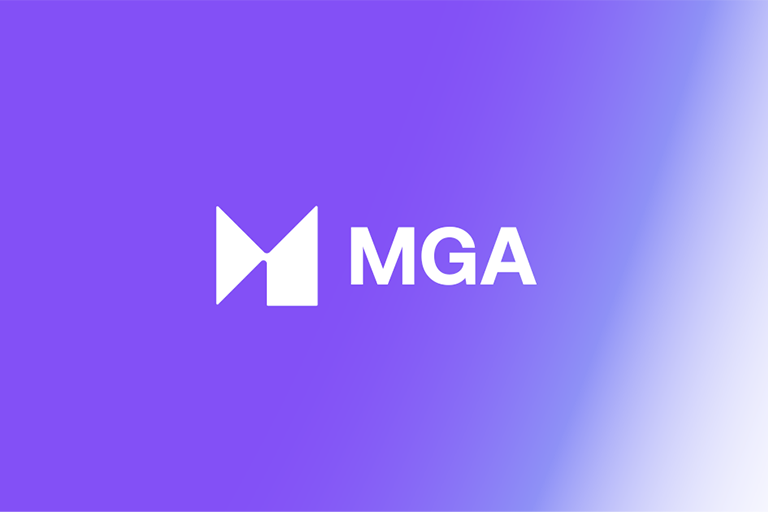Latest Updates in MGA Audit Processes

In gaming regulation, the Malta Gaming Authority (MGA) stands as a beacon of oversight, diligently ensuring fairness, integrity, and adherence to stringent standards. Recently, the MGA introduced significant updates to its audit processes, heralding a pivotal shift for Approved Audit Service Providers and licensees alike. Understanding these adjustments is paramount for all stakeholders invested in the gaming sector.
The Role of the Malta Gaming Authority:
The Malta Gaming Authority (MGA) holds a pivotal position within the global gaming industry, serving as a regulatory authority entrusted with upholding the highest standards of integrity, transparency, and responsible gaming practices. Established in 2001 under the Malta Gaming Authority Act, the MGA has consistently evolved to meet the evolving needs of the gaming landscape, fostering a robust regulatory framework that balances innovation with consumer protection.
Historical Context of Gaming Regulation in Malta:
Malta has long been recognized as a hub for gaming operators seeking a supportive regulatory environment conducive to growth and innovation. The strategic location, coupled with a progressive legislative framework, has propelled Malta to the forefront of the global gaming industry. The MGA’s inception marked a significant milestone, providing a unified regulatory authority to oversee all forms of gaming activities, including online gaming, land-based casinos, and sports betting.
Evolution of Audit Processes:
The audit processes implemented by the MGA have undergone continuous refinement to adapt to the evolving dynamics of the gaming industry. Historically, audits served as a mechanism to assess compliance with regulatory standards, ensuring that licensees uphold the integrity of their operations and safeguard the interests of players. However, as the gaming landscape grew in complexity and diversity, there arose a need for enhanced oversight and accountability.
Rationale Behind the Updates:
The recent updates introduced by the MGA reflect a proactive approach to regulatory oversight, aimed at enhancing transparency, efficiency, and effectiveness in the audit process. With the proliferation of online gaming platforms and the globalization of the industry, there emerged new challenges and risks that necessitated a comprehensive review of audit procedures. The revisions seek to address these challenges while reinforcing the MGA’s commitment to regulatory excellence.
Key Updates in Audit Processes:
The MGA’s updates to its audit processes encompass various aspects, including submission deadlines, resolution of non-compliance issues, and the introduction of new audit conclusion statuses. These changes are designed to streamline the audit process, facilitate timely resolution of compliance issues, and provide greater clarity in communicating audit findings.
Submission Deadlines and Timelines:
One of the notable updates introduced by the MGA pertains to submission deadlines for audit reports. Approved Audit Service Providers are now required to adhere to specific timelines, depending on the type of audit being conducted. System Audits and System Reviews afford providers a sixty-day window, while Compliance Audits extend to ninety days. Adherence to these deadlines is imperative for maintaining regulatory standards and ensuring the integrity of gaming operations.
Resolution of Non-Compliance Issues:
In instances where non-compliance issues are identified during audits, prompt resolution is paramount to uphold regulatory adherence and operational efficiency. Approved Service Providers are tasked with conducting thorough investigations to assess the compliance status accurately. The introduction of new audit conclusion statuses, such as ‘Resolved at Audit Stage’ and ‘Partially Compliant,’ aims to expedite the reporting process and provide licensees with clear guidance on addressing identified issues.
Extension Requests and Authority Discretion:
Licensees facing challenges in resolving non-compliance issues may request a one-time extension, subject to approval by the Authority. However, the decision to grant an extension rests solely with the MGA, with the duration determined at their discretion. It is essential to underscore the discretionary powers wielded by the Authority, emphasizing the importance of rigorous compliance measures and unwavering adherence to regulatory standards.
Conclusion:
In conclusion, the recent updates to the Malta Gaming Authority’s audit processes underscore the Authority’s unwavering commitment to regulatory excellence and industry best practices. By embracing transparency, efficiency, and accountability, the MGA aims to foster a gaming ecosystem characterized by integrity, fairness, and responsible conduct. It is incumbent upon all stakeholders, including Approved Audit Service Providers and licensees, to adapt to these changes and uphold the highest standards of compliance and operational excellence.
FAQs:
What is the role of the Malta Gaming Authority (MGA) in gaming regulation?
The Malta Gaming Authority (MGA) serves as a pivotal regulatory body, ensuring fairness and adherence to standards within the gaming industry.
What are the key updates introduced by the MGA in its audit processes?
The MGA has implemented nuanced updates to its audit processes, encompassing aspects such as submission deadlines, resolution of non-compliance, and the introduction of new audit conclusion statuses.
How do Approved Audit Service Providers contribute to the auditing process?
Approved Audit Service Providers play a crucial role in conducting thorough audits, ensuring compliance with regulatory standards, and providing clarity in conveying audit findings.
What is the significance of meeting submission deadlines for audit reports?
Adhering to submission deadlines for audit reports is pivotal for upholding regulatory standards and preserving the integrity of gaming operations.
What actions are required in cases of non-compliance during audits?
Instances of non-compliance necessitate thorough investigation, prompt communication with licensees, and expedited resolution to maintain regulatory adherence and operational efficiency.
Can licensees request extensions for resolving non-compliance issues?
Yes, licensees can request a one-time extension for resolving non-compliance issues, provided they furnish a comprehensive summary of identified issues and a clear remediation plan.
What discretionary powers does the Authority retain in the auditing process?
The Authority retains the discretionary authority to reject audit reports if they fail to provide a conclusive review outcome due to significant instances of non-compliance.
How can stakeholders ensure continued compliance and operational excellence?
Stakeholders can ensure continued compliance and operational excellence by familiarizing themselves with the latest updates in audit processes and adhering rigorously to regulatory standards.
What measures can licensees take to expedite the resolution of non-compliance issues?
Licensees can expedite the resolution of non-compliance issues by promptly addressing identified issues and implementing robust remediation strategies within the designated timeframe.
What implications do the updates in audit processes have for the gaming sector?
The updates in audit processes underscore the MGA’s commitment to transparency and integrity in the gaming sector, necessitating heightened diligence and compliance from all stakeholders.
Lisa
Welcome. I am an experienced writer and I am ready to help you with all forms of writing needs you require. Education B.A. - linguistics, University of Wisconsin-Whitewater, United States, Graduated 2006.
Recommended Posts

Inside the Realm of iGaming
July 5, 2024

Crypto Casinos: Bitcoin Impact on Online Gambling
July 5, 2024

iGaming: Exploring Europe’s Best Platforms
July 5, 2024




